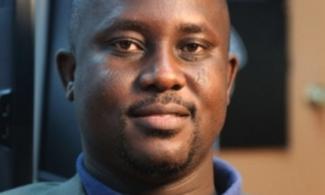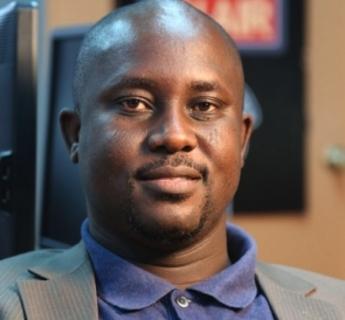
There he was surrounded by folks ready to go and give testimony at Church on Sunday for the miracle of three hours of electricity.

Shortly before he withdrew totally from discussing and keeping abreast of Nigerian current affairs, a friend once advanced a thesis that has since haunted my consciousness and kept me awake at night. What worries me is not just the suspicion that his nightmarish proposition may damn well be right, it is the knowledge that I have come close to that conclusion so many times myself. Now, that really scares me.
He is in his fifties. Some thirty of his fifty something years on earth he has spent in Europe, Canada, and the United States (Egbon, sorry o, I warned you I would have to use this your story in an op-ed one day). The thirty something years he has spent outside of Nigeria has been spent permanently agonizing about the terrible tragedy that is Nigeria. The success he has made of his life outside has not been any comfort. Thirty years of pain and anguish, of gnashing of teeth, of sorrowing, of headache, of being in a state of permanent dissatisfaction because of the terrible failures of his Nigerian homeland. When he left Nigeria in the 20th century (1980), regular electricity and water were the stuff of miracle in his hometown. He visits every other year. During his visit in 2010, he realized that he was now in the 21st century and regular electricity and water were still the stuff of miracle in his hometown.
That visit was in 2010. What he also realized is that the Nigerian tragedy has consumed the self-worth and dignity of the citizen. Water and electricity were irregular when he left (although much better than what obtains today) but you knew that those services were your right. You did enough social studies in primary school, enough Government in secondary school, to understand that those are things that must come with the territory of your citizenship. And there he was in 2010 surrounded by citizens ready to call you a traitor and shout you down if you are not sufficiently grateful to whoever is currently stealing from them for providing a kilometre of road here, one hour of electricity there, refurbished World War II locomotives here and there.
There he was surrounded by folks ready to go and give testimony at Church on Sunday for the miracle of three hours of electricity. Between 1980 and 2010, the ruling classes had ensured the total annihilation of civic sentience and awareness, producing the sort of psychology ready to be grateful for President Goodluck Jonathan’s mediocrity – and to label those who are not grateful for it unpatriotic. Nigeria has thus produced two generations of citizens without civics and that in itself is a crime committed against the people by their rulers.
We are talking about 2010, the year of my friend’s crisis of consciousness when he travelled home to Nigeria. Things were even still good. That was long before the incubus that is President Goodluck Jonathan went to Kenya to announce to the world that Nigeria has the highest number of private jets in Africa and that is how he measures the well-being of Nigerians. My friend put all these scenarios together and announced to me that he was through with Nigeria. At fifty something, he was going to dedicate the next phase of his life to being a patriotic American citizen. I asked him why and that's when he gave me the rationalization that has traumatized me ever since.
He told me coolly that he is no longer interested in thinking through Nigeria's endless self-inflicted woes and self-designed failures because he has accepted and made peace with the fact that not all countries are meant to be good. Not all people are meant to make a success of nation statehood. Not all people are meant to make it to the mountain top of project nationhood. Some countries, he said, are meant to be permanently bad, permanently dysfunctional, and permanently unsuccessful and even if you gave Dubai to such countries they'd transform it to Darfur in no time. He is able to live with this sad conclusion, he tells me, because in their badness, such countries serve a good purpose, a good cause: they serve as examples to others of how not to run a country, how not to envision and envisage project nationhood, how not to be a country. Another Nigerian would later make this fatalistic claim on my Facebook wall: he has accepted his fate and accepted Nigeria as is because some countries are not meant to be good.
When I heard of the great evil that Goodluck Jonathan had visited on our country today, my mind went to this thesis. I was despondent and discouraged. My heart palpitated. I very nearly drove to the Residence of the Nigerian High Commissioner to drop my passport with Ojo Maduekwe and be done once and for all with a nation-space that has found permanent employment for my tear ducts. I don’t need this, I tell myself. That one wicked, evil man could scheme to reverse every gain we have made on our journey as a people since June 12, 1993 was just too much for me to bear.
Make no mistake about it, what Goodluck Jonathan has called a postponement of the election, after getting his compromised security goons (especially his irresponsible National Security Adviser) to intimidate and blackmail INEC, is a pre-annulment of an election in which he was going to suffer a humiliating defeat. Boko Haram has never stopped Goodluck Jonathan from frolicking and partying away in Kano or from marriage festivities anywhere. Boko Haram murdered two thousand Nigerians and he was more worried about a dozen journalists murdered in France. To now use Boko Haram so cynically to rape our democracy is an ultimate act of treason for which, one must hope, Goodluck Jonathan and all the enablers of his evil shall one day stand trial.
Questions assailed me: are we meant to do Africa and the rest of humanity a good turn by being bad as a country? Are we the bad example that aspiring democracies in Africa must use as a guide out of the woods? If you want to make a success of 21st-century nation-statehood and the practice of genuine democracy, study Nigeria and avoid her steps? Is this the good ordained to come out of our bad? Is this the joke we have allowed folks like Goodluck Jonathan to reduce us to?
I found my answer in hours of online and telephone interaction with outraged Nigerians all over the world. Across all our fault lines – ethnicity, religion, etc – they poured out into our spaces and spheres of national discursive communion to condemn evil. Even career Jonathanians, too far gone in whatever highs he serves them to be able to openly admit that Goodluck Jonathan is not Jesus Christ the infallible – had enough sense to recognize the great evil that their man has visited on our country and wisely kept a low profile today. Only a few irredeemable career Jonathanians have been out defending this treasonable civilian coup-d’état.
The near-national consensus on the recognition of the great evil that was done to our country today and the strident determination of our people to persevere, persist, and overcome has taught me a fundamental lesson. Perhaps some countries are meant to be bad and, in being bad, serve a good purpose of example to others. Perhaps some people are fated to eternal self-inflicted injuries and self-designed failures on a doomed march to nationhood. Perhaps some people are not meant to make it to the mountaintop of project nationhood. None of these things matters to me anymore for Nigerians have taught me today that what matters is how history records a people’s reaction to the badness in which they find themselves on the great pathways of history. In your millions, you poured out to the public sphere to have your voices recorded against badness and evil. The Jonathan junta rolled out troops, thinking you’d give them the excuse of violence to shed your blood but the fools do not know that your victory lies elsewhere.
And we must pity President Goodluck Jonathan, holder of a (P)owerful (H)igh (D)egree from the University of Port Harcourt. We must pity him because he is devious and he has surrounded himself with criminals and evil men bent on ruining Nigeria. That is why they are afraid to let him know the truth they now understand only too well. Reuben Abati, for instance, has read too many books not to understand that what is happening now is a mass movement for integrity in which Buhari has become a transcendental sign. Buhari is now a sign and a movement has coalesced around that sign. When that happens, no force is powerful enough to stop the movement of such a tide. Even Buhari is powerless to stop what is blowing across Nigeria now and has adopted him as arrowhead irrespective of his human strengths and weaknesses. This tide has become so much bigger than Buhari now – big enough for a Nobel laureate to sense it and carefully arrange himself.
Those who have read some books in the confederacy of criminals around President Jonathan are afraid to tell their Oga that pre-annulment or postponement – whatever they call it – is powerless against this sort of tide. This tide is an idea whose time has come. We have now heard them in the Ekiti tapes so we understand only too well what they hope to achieve with this so-called Boko Haram postponement: re-oil the rigging machine and promise juicy promotions to key military men. Unfortunately for these puny little men trying to stand in the way of the hurricane that is blowing across Nigeria, their scheme is dead on arrival.
The people who rose up en masse today to condemn Goodluck Jonathan’s evil were going to do just one thing on February 14: punish him for failure and send him packing to Otuoke. Now, he has annoyed many more people than were going to sack him. He has merely strengthened the tide and the movement. The Nigerians who were going to sack him for only one reason in February must now sack Goodluck Jonathan for two reasons in March: (1) Failure; (2) Treason.